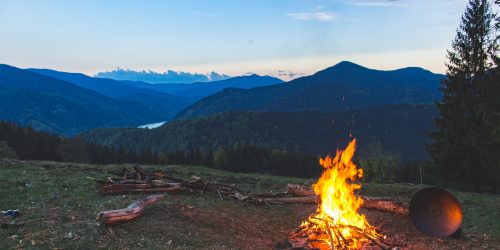Staff Group Nature Retreat Agenda

“A 3 hour nature retreat at an identified outdoor space for an 8 person staff group. Retreat was tailored to focus on identified themes including: mindfulness, self-care, communication, improving staff relationships, exploring thoughts on supports, managing vicarious trauma, and creating workplace environment that fosters growth. Nature was used to foster being present and therefore amplifying participation in activities/perspectives.”
Staff Group Nature Retreat Agenda (3 hours)
My Introduction (10 minutes)
-introduce self and style
-orient to outdoor space
-provide brief agenda
Create Space for Being More Present (10 minutes)
-highlight not doing introductions yet, create space to be more present
-talk about how we tend to forget to make sure our bodies are present
-“How do you get more present and make sure both your mind and body is here?”
–e.g. stretching, meditating, movement, breathing
-provide a few minutes for people to use their preferred way to be more present
–encourage engaging with nature
Introductions (15 minutes)
-go around circle for introductions
–name, and what thing in nature best represents you when at home/relaxed vs. work/stressed?
-reflect on relationships highlighted
–why this workshop? what are everyone’s hopes?
-reflect on answers, explore how this can be further incorporated into workshop
Non-Verbal Mindfulness Group Activity (10 minutes)
-introduce fun non-verbal mindfulness activity
-encourage focus solely on the activity
-challenge abilities
-reflect on experience, what improves non-verbal communication
Verbal Mindfulness Group Activity (10 minutes)
-tossing imaginary ball
-add other imaginary balls, challenge group to their limits
-group reflection; what personal responses came up; how related to work place
–encourage reflections related to communication, work/life balance
Non-Verbally Connect with Each Other (10 minutes)
-encourage staff to partner up and explore nature together without talking
-highlight importance of connecting with each other to enjoy experience
-every few minutes, have people to switch partners so everyone interacts with each other
-discussion how do we stay non-verbally in tune and not always stay focused on our own agendas
-reflections on ability to enjoy moment
-did people get more playful/comfortable the longer the activity occurred
–how does talking sometimes get in the way with a deeper connection?
Small Group Discussion (10 minutes)
-break into smaller groups, encourage people to find space in nature to have conversation:
–what nature based metaphor relates to workplace settings (landscape, animal with
certain behavior)
-how does this include how each person described themselves at beginning
-what outside forces can impact workplace setting?
-share in larger group
Use Slackline to Amplify Different Themes (35 minutes)
-still in 2 groups, have 1 group take turns using slackline and other group silently observing without talking
-REMEMBER: breathe, look up, be in moment
-first group uses slack line; second group observes quietly noting metaphor compared to work setting (how does individual manage themes of balance, focus, etc.)
-first group
-each person gets a turn with slack line and rope, then reflect as whole group
-each person gets a turn with slack line and human support; then reflect as a
whole group
-when second group goes and uses slackline NO TALKING for support
-each person gets a turn with slack line and rope, then reflect as whole group
-each person gets a turn with slack line and human support; then reflect as a
whole group
-how is it to be observed/observe?; how do you ask for support?; how do you find balance and tackle something that may unbalance you
Start Campfire (5 minutes)
-build campfire and provide brief break
-pass out supplies for making s’mores
(until final activity, group stays by campfire)
Group Discussion on Trauma (15 minutes)
-provide brief psycho-education about vicarious trauma, incorporate nature based metaphors
–deer in the woods, nature can normalize without invalidating, what does animal do when unsafe
–protect self, being hyper-vigilant, when feeling unsafe, unbalanced
–importance of feeling safe and grounded; early warning signs, triggers, coping skills
–non-verbal emotional brain; creative self; self expression, getting out the trauma
-allow time for questions/deepening conversation
Partner Discussion on Self-Care (10 minutes)
-everyone identifying their own early warning signs, triggers, coping skills
–what kind of animal best represents how they cope?
–how do you ask for support, communicate?
–what are barriers to getting support/self care?
–how do you manage conflicting priorities?
Self-Reflection on Growth Activity (5 minutes)
-observe something in nature that grows
-describe it’s growth process in as many ways as possible
Large Group (15 minutes)
-everyone shares their observations
–highlight how similar/different their observations are to their own process
-how to foster growth at work
Relaxation Activity (10 minutes)
-lead a group agreed upon relaxation activity to decompress
–(e.g. progressive muscle relaxation, fun activity, guided meditation)
Saying Goodbye (10 minutes)
-overall reflections/questions
-what have you gained? what do you want to let go of?
-feedback
-highlight importance of rituals: SHAKE IT OFF!
